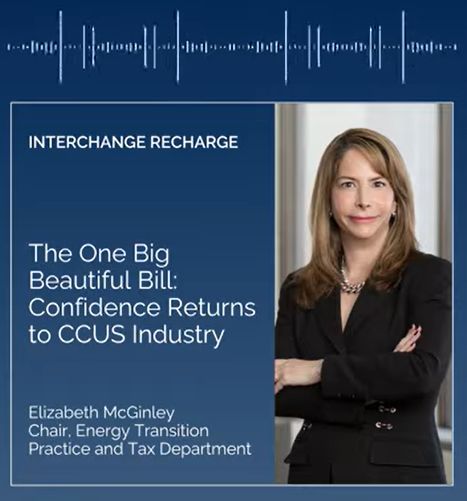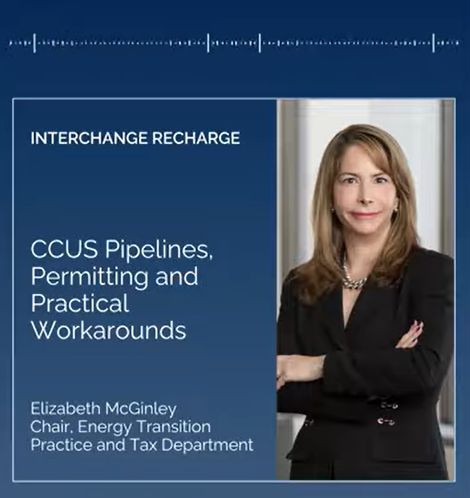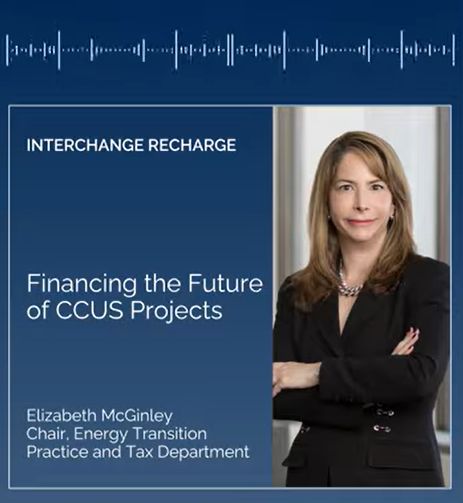- within Energy and Natural Resources topic(s)
- in China
- in China
- within Real Estate and Construction topic(s)
Elizabeth McGinley joins Sylvia Leyva Martinez on Wood Mackenzie's Interchange Recharged podcast to discuss the evolving carbon capture, utilization and storage (CCUS) regulatory landscape. She highlights how the continuation of the 45Q tax credits is driving investment and confidence in CCUS projects, even amid regulatory uncertainty around permitting and greenhouse gas reporting rules. Liz also notes the growing sophistication of financing, insurance and risk management strategies that are helping CCUS projects advance across the US energy sector.
Episode Highlights
[0:30] The One Big Beautiful Bill: Confidence in the CCUS Industry: Liz points to increased confidence in the CCUS industry following the passage of the "One Big Beautiful Bill," which enhanced 45Q tax credits for carbon sequestration. These incentives increased financial viability and signaled federal support for CCUS development.
[1:40] CCUS Pipelines, Permitting and Practical Workarounds: Despite the lack of progress on regulatory guidance regarding the transport of supercritical CO₂, some have repurposed existing pipelines as a workaround.
[5:52] Impact of Potential EPA Repeal: Liz discusses the potential impact of the anticipated repeal of the EPA's Greenhouse Gas Reporting Program, which is woven into several federal tax credits for energy transition, including CCUS.
[9:40] Financing the Future of CCUS Projects: Developers are balancing equipment and maintenance costs with incentives and potential revenue premiums for decarbonized products. Financial institutions are becoming more familiar with geological storage risks, and the availability of insurance against CO₂ leakage has further boosted investor confidence.
[14:05] Broader Adoption and Market Maturity: Liz concludes that CCUS deployment is expanding beyond early ethanol and gas-processing facilities to include post-combustion capture at gas-fired power plants. Greater familiarity among banks, insurers and carbon registries has strengthened market momentum and paved the way for broader commercial adoption.
Highlight: The One Big Beautiful Bill: Confidence Returns to CCUS Industry
Stronger policy support and enhanced 45Q tax credits have fueled a surge of investor confidence and capital in the CCUS industry, driving momentum for large-scale deployment.

Highlight: CCUS Pipelines, Permitting and Practical Workarounds
In response to regulatory uncertainty, companies are getting creative, repurposing existing natural gas pipelines, like the Tallgrass Trailblazer project, to transport CO₂ and fast-track deployment.

Highlight: Financing the Future of CCUS Projects
Banks are navigating the complexities of CO₂ storage, learning to assess site-specific geologic risks, while insurance companies are helping to mitigate potential financial exposure.

Listen to the Full Episode
The content of this article is intended to provide a general guide to the subject matter. Specialist advice should be sought about your specific circumstances.

